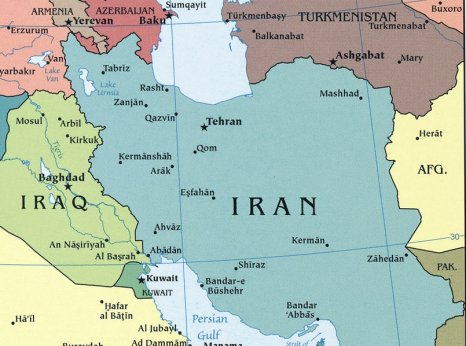Iran: Thousands At Risk Of Execution In Iran

According to information available to Amnesty International, including from primary sources and human rights defenders based outside Iran, scores of individuals are under sentence of death and at grave risk of execution following grossly unfair trials and conviction of politically-motivated charges, including the overly broad and vaguely defined charges of “enmity against God” (moharebeh), “corruption on earth” (efsad-e fel-arz), and “armed rebellion against the state” (baghi).
Amongst them are at least three women: Pakhshan Azizi, Sharifeh Mohammadi and Verisheh Moradi and at least 50 men: Abbas Deris, Abolhassan Montazer, Abdolghani Shahbakhsh, Abdolrahim Ghanbarzehi, Adnan Ghobeishavi, Afshin Ghorbani Meyshani, Ahmadreza Djalali, Ali (Soran) Ghassemi, Ali Mojadam, Ali Obeidavi, Alireza Bamerzpournak, Alireza Kafaei, Alireza Merdasi, Akbar (Shahrokh) Daneshvarkar, Amir Hossein Maghsoudloo (Amir Tataloo), Amir Mohammad Khosheghbal, Babak Alipour, Babak Shahbazi, Ehsan Faridi, Eidou Shahbakhsh, Farshad Etemadi Far, Fazel Bahramian, Habib Deris, Turkish national Hatem Özdemir, Hossein Nemati, Issa Eidmohammadi, Kaveh Salehi, Manouchehr Fallah, Masoud Jamei, Mehrab (Mehran) Abdullahzadeh , Milad Armoun, Moein Khanfari, Mohammad Taghavi Sangdehi, Mohammad Javad Vafaei Sani, Mohammadreza Moghaddam, Navid Najaran, Omid Tabari Moghaddam, Peyman (Amin) Farhahvar, Pezhman Soltani, Peyman (Amin) Farhahvar, Pouya Ghobadi, Rezgar Beigzadeh Babamiri, Salem Mousavi, Saman Mohammadi Khiareh, Shahin Basami, Soleiman Shahbakhsh, Tayfour Salimi Babamiri, Vahid Bani Amerian, Yaghoub Derakhshan and Yousef Ahmadi. Based on statements from officials, it is feared that thousands of others are also at risk of either execution after having been sentenced to death or are facing investigations or prosecutions on capital offences, including for drug-related offences or overly broad and vaguely worded charges that do not meet the principle of legality, as well as internationally recognizable criminal offenses (also referred to as ordinary crimes), including for murder.
In the aftermath of the Woman Life Freedom uprising in 2022, the Iranian authorities weaponized the death penalty to instil fear among the population and tighten their grip on power. In 2023, authorities carried out at least 853 executions, marking a 48% increase from 2022. In 2024, Amnesty International recorded 972 executions, marking the highest number of executions since 2015, with at least 52% (505) people executed in connection o drug-related offenses, continuing a disturbing upward trend since the authorities’ return in 2021 to a heavily punitive drug policy and in violation of international law which strictly prohibits the use of the death penalty for drug-related offenses. Iranian authorities’ use of the death penalty also further disproportionately impacts Iran’s oppressed minorities, particularly those belonging to the Afghan, Baluchi, and Kurdish communities. In 2024, the number of Afghans executed rose significantly compared to 2023, from 25 to 80, with around half executed for drug-related offences. This rise coincided with the escalation of hateful and dehumanizing language and treatment of Afghans, which has continued in 2025. After the escalation of hostilities between Israel and Iran in June 2025, Iranian officials, who have historically referred to Afghans as “foreigners” or “unauthorized nationals”, intensified their use of racist, xenophobic and dehumanizing rhetoric against this community. Authorities have also made unsubstantiated accusations against Afghans alleging “espionage” for Israel. At least five individuals identified as Afghans have been arrested since 14 June 2025 on such accusations, and state media has aired the forced “confessions” of at least four of these men.
Senior officials, including Gholamhossein Mohseni Eje’i, the head of judiciary, have called for expedited trials and executions for “supporting” or “collaborating” with hostile states, including Israel. State-affiliated media outlets have advocated for the repetition of 1988 prison massacres, including in a Fars News article, claiming that “the mercenary elements…deserve 1988-style executions”. Since 13 June 2025, at least nine men have been executed on politically-motivated charges and/or accusations of espionage for Israel.
Amnesty International opposes the death penalty in all cases without exception. The death penalty is a violation of the right to life as proclaimed in the Universal Declaration of Human Rights and it is the ultimate cruel, inhuman and degrading punishment. Amnesty International has consistently called on all states that retain the death penalty, including Iran, to establish an official moratorium on executions, with a view to completely abolishing the death penalty.